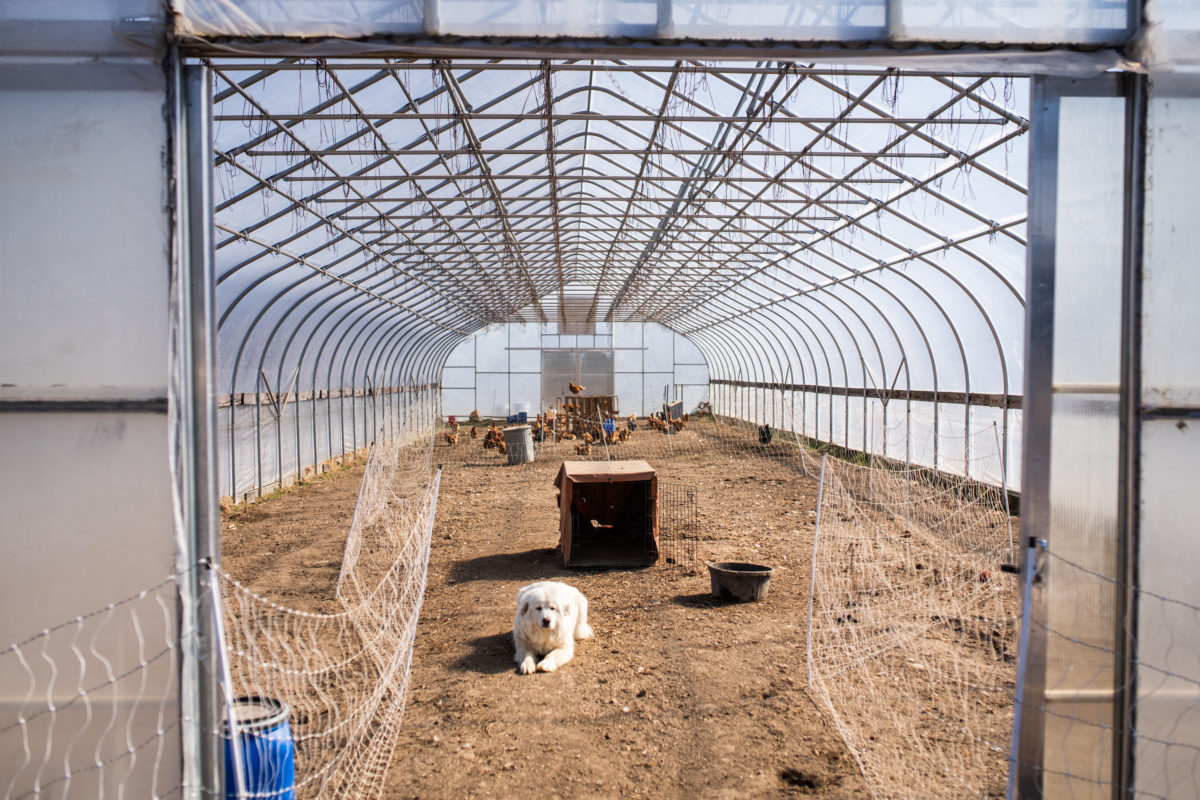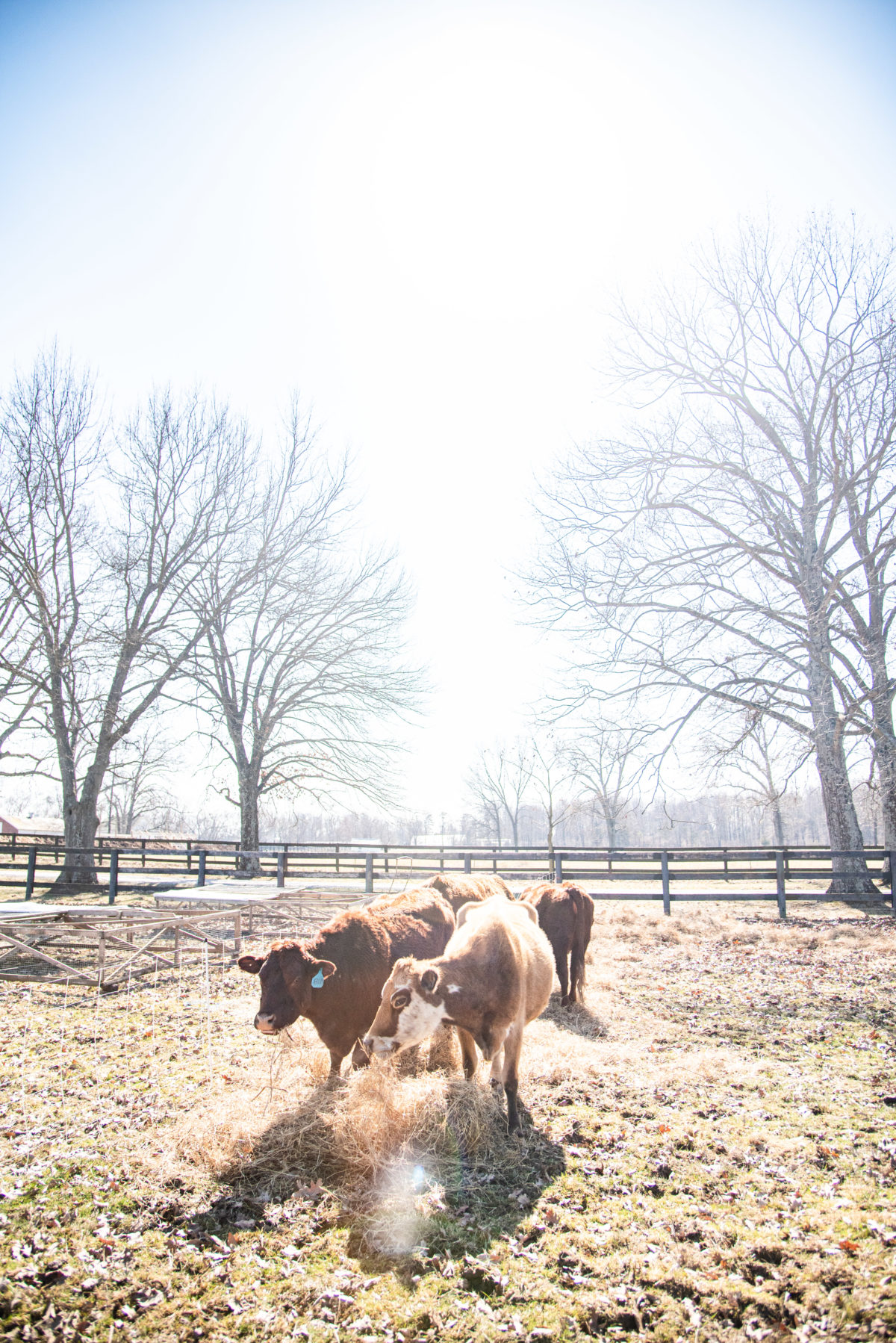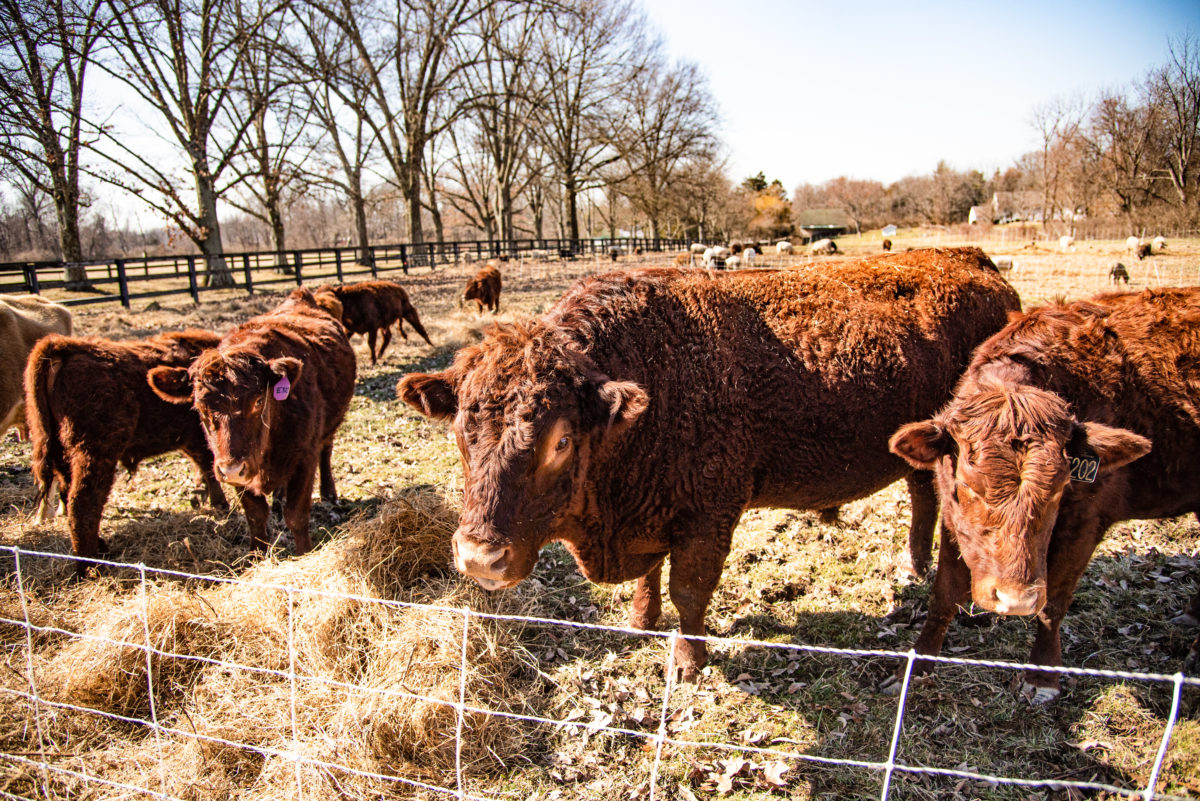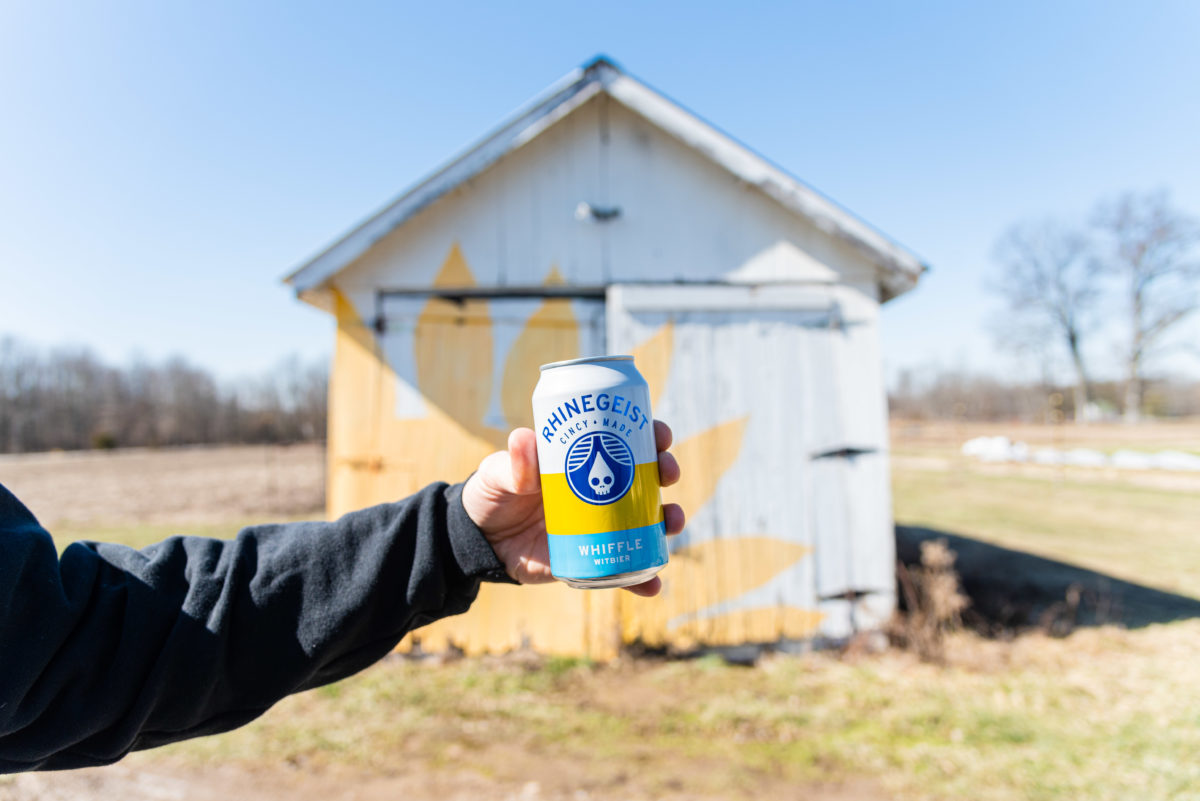Roasted Mushroom Polenta with Whiffle
In this farm to table edition of Rhinegeist Recipes, we went up to Turner Farm in Indian Hill, OH. Chef Stephanie White crafted Roasted Mushroom Polenta with Whiffle, our new Witbier, topping it off with a poached egg. This recipe comes in three parts: making the mushroom polenta, poaching the egg, and preserving the lemons.
Turner Farm has been in operation since the early 19th century, and has been devoted to organic growing since 1994. Folks of all ages are welcome to visit. Visitors can unwind with a stroll through the property, take a cooking class at the Turner Farm Teaching Kitchen, and pop into the Farm Market for locally grown organic produce and pastured meat and eggs.
Stephanie White is the Culinary Manager at Turner Farm. Raised in Connecticut, White worked in organic farming in Maine before graduating from the Culinary Institute of America in New York and studying food cultures in Germany, India and Ireland. She prefers AC/DC songs with bagpipes over those without.
Roasted Mushroom Polenta
Ingredients (yields 4-6 servings)
- Salt (to taste)
- Rhinegeist Whiffle Wit (2 cans)
- Polenta (1 cup)
- Butter or Olive Oil (4 Tbsp, divided)
- Mushrooms, torn or thinly sliced (1 ½ lbs)
- Thyme (4 sprigs)
- Cornstarch (2 tsp)
- Lemon Zest and Juice from 1 lemon
- Quark Cheese (½ cup, or more to taste)
- Poached Eggs (as needed)
- Preserved Lemons, diced very small (as needed)
- Chives, chopped (as needed)
- Black Pepper (to taste)

Method
Preheat an oven to 325F.
In a large pot: bring 3 cups of water and 1 ½ cups of Whiffle Wit to a boil with some salt. Once boiling: stream in the polenta while whisking constantly (this will prevent the polenta from clumping). After the polenta has all been added and the pot comes back up to a boil: turn off the heat and place a tight-fitting lid on to the pot. Transfer to the oven and bake until tender, roughly 25-30 minutes.
While the polenta is cooking: place a large saute pan on the stove and heat over medium-high heat. Add 2 Tbsp of either butter or oil until warmed. Add the thyme stems and mushrooms evenly – try not to overcrowd the pan as the mushrooms may not brown properly (you can cook the mushrooms in batches, if your pan is not large enough, or even roast the mushrooms in a preheated oven until golden brown). Season with salt and black pepper and cook until the mushrooms are golden brown and crispy. In a small bowl: whisk together ½ cup of Whiffle Wit with the cornstarch to remove any clumps. Add the liquid to the saute pan and allow to beer to cook until thickened. Season to taste and remove the thyme sprigs.
Once the polenta is tender (after ~25-30 minutes): remove polenta from the oven and allow to sit for five minutes. Add the remaining 2 Tbsp of butter (or oil), quark, lemon zest, and lemon juice. Whisk in and season to taste.
Cook the poached eggs at this time, if not already prepared.
Place the polenta into a serving bowl (or bowls), top with mushrooms, poached egg(s), chives, preserved lemons, and cracked black pepper, if desired.
Serve and enjoy.
Note: You can substitute the chives for other fresh herbs or microgreens, such as micro-scallions!
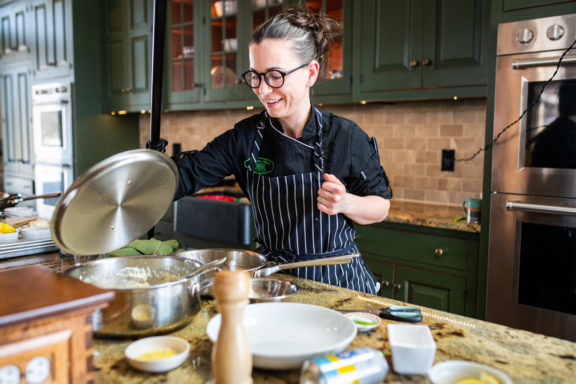

Poached Eggs
Ingredients (yields 4 servings)
- Eggs (4 each)
- Water (2 quarts)
- Salt (1 tsp)
- Vinegar, distilled (4 Tbsp)
Method
Break the eggs into clean cups (1 egg per cup).
Heat the water, salt, and vinegar in a shallow sauce pot to 180 degrees Fahrenheit.
Slide four of the eggs in carefully and raise the heat to medium high until the water has returned to 180 degrees.
Cook the eggs approximately 3-4 minutes until white has set and the yolk still feels pliable.
Remove the eggs, one at a time, and blot excess water. Hold in ice cold water, if making in advance.
Rewarm the eggs in the same liquid for one minute before plating.

Preserved Lemons
Ingredients (yields 6 lemons)
- Lemons (6 each)
- Salt (½ cup)
- Lemon Juice from 6 each, (roughly ¾ cup)
Method
Wash and cut each lemon into wedges. Remove as many seeds as possible and then place in a sterilized glass jar. Add the salt and lemon juice, mix well, and make sure the liquid covers the lemon wedges.
Cover with a lid and refrigerate. Allow the lemons to sit in the fridge for at least a week—stirring every day to help the salt dissolve. Before using rinse under water and remove any remaining seeds before using.



